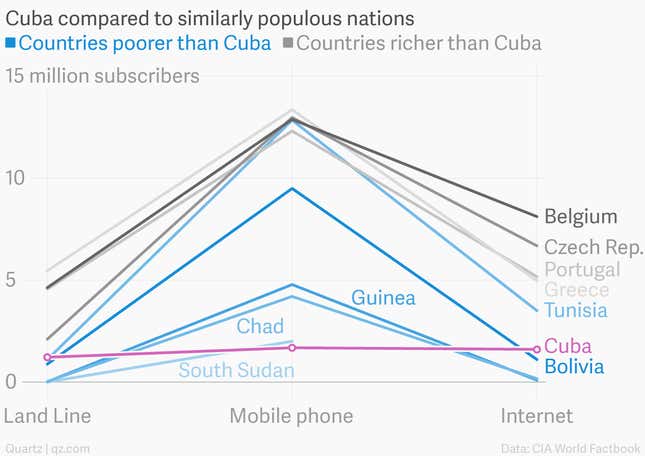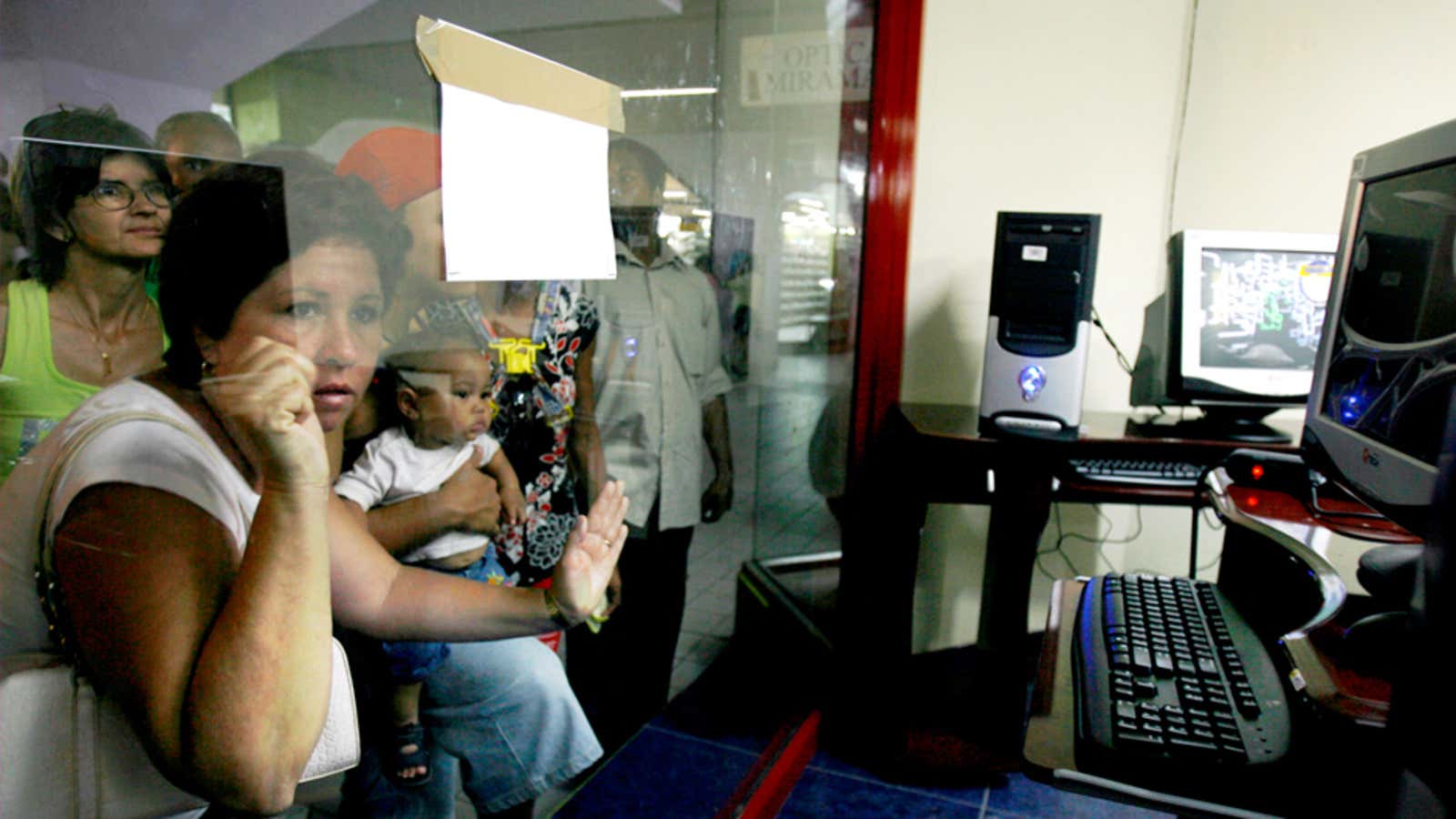This post has been corrected.
With the first phone call between US and Cuban presidents since the Cuban revolution, the process for normalizing the relationship between the two nations began yesterday. Harold Trinkunas, a researcher at the Brookings Institute, suggests that as restrictions on travel and trade with Cuba begin to ease, there could could be new opportunities for Cuban’s emerging middle class. Plenty of American companies are no doubt keen to enter a new market.
In the technology sector, a way to measure the potential of the Cuban market is to ask: how many people have even a land line, like the one Raul Castro used to chat with Barack Obama today?
The answer: there are 1.21 million lines, for of a population of 11.25 million.

According to the CIA World Factbook, Cuba ranks 68th among the countries of the world in land lines, 79th in internet subscriptions, and 149th in cellphones. (Interestingly, one of the other few remaining self-styled socialist nations—North Korea—has about as many cellphones as Cuba, albeit with twice the population.)
The room for growth, then, is huge. But don’t expect it to happen overnight. Clifford Shultz, a Loyola University Chicago business professor who has researched Cuba’s infrastructure prospects, compares Cuba’s situation to that of Vietnam’s in the 90s. “The government will act conservatively at first, but they’ll realize the internet—or fax machines, in Vietnam’s case— are a good thing,” he says. (Full disclosure: Shultz is this reporter’s uncle.)
And American companies shouldn’t expect an easy stroll in a new market: lots of other countries have already made large investments in Cuba—such at the recent deep-sea cable hooking the island up to more reliable internet access from Spanish telecoms giant Telefonica. “We’re the last on the outside looking in,” says Shultz.
Read this next: It’s not the US embargo that keeps Cuba poor, it’s the brothers Castro
Correction (Dec. 18): An earlier version of this article referenced Vietnam’s infrastructure situation in the 1970s instead of the 1990s. The photo caption also earlier said that computers were only introduced to Cuba in 2008. In fact they were there before, but their sale and use were restricted.




